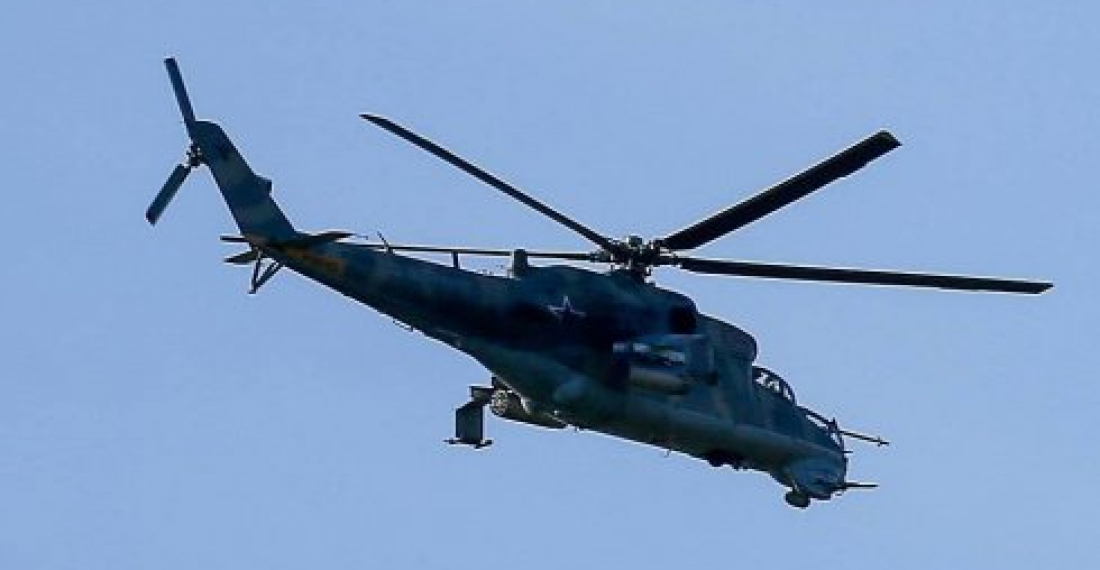Azerbaijan has confirmed that it has shot down a Russian military helicopter by mistake in an incident on the border between Armenia and Azerbaijan's autonomous republic of Nakhchivan.
Earlier the TASS news agency, citing sources at the Russian Defence Ministry, reported that a Russian Mi-24 helicopter was downed over Armenia near the border with Azerbaijan from a man-portable air-defense system, killing two and injuring one. The statement added:
"On November 9, at about 17:30 Moscow time, a Russian Mi-24 helicopter came under fire from the ground from a man-portable air-defense system when accompanying a vehicle convoy of the 102nd Russian military base on the territory of the Republic of Armenia in the airspace close to the Armenian settlement of Yeraskh near the border with the Nakhchivan Autonomous Republic (the Republic of Azerbaijan). Two crew members were killed, one was evacuated with moderate injuries to the home air base".
A statement issued by the Azerbaijani foreign ministry shortly afterwards said,
"According to the information received at the Ministry of Defense of the Azerbaijan Republic from the Ministry of Defense of the Russian Federation, on November 9 this year, at 18:30 a military helicopter Mi-24 of the Russian Federation was shot down on the Nakhchivan section of the Armenian-Azerbaijani state border.
In this regard, the following should be emphasized:
- the helicopter flight took place in close proximity to the Armenian-Azerbaijani state border, while active military clashes continue in the zone of the Armenian-Azerbaijani Nagorno-Karabakh conflict.
- the flight took place in the dark, at low altitude, outside the air defense radar detection zone.
- RF Air Force helicopters have not previously been seen in the specified area.
In the context of these factors and in the light of the tense situation in the region and increased combat readiness in connection with possible provocations of the Armenian side, the duty combat crew decided to open fire to kill.
The Azerbaijani side apologizes to the Russian side in connection with this tragic incident, which is accidental and was not directed against the Russian side.
The Azerbaijani side expresses its sincere condolences to the families of the killed crew members and wishes the injured people a speedy recovery.
The Azerbaijani side declares its readiness to pay appropriate compensation".
source: commonspace.eu with TASS news agency (Moscow) and Haqqin.az (Baku).






